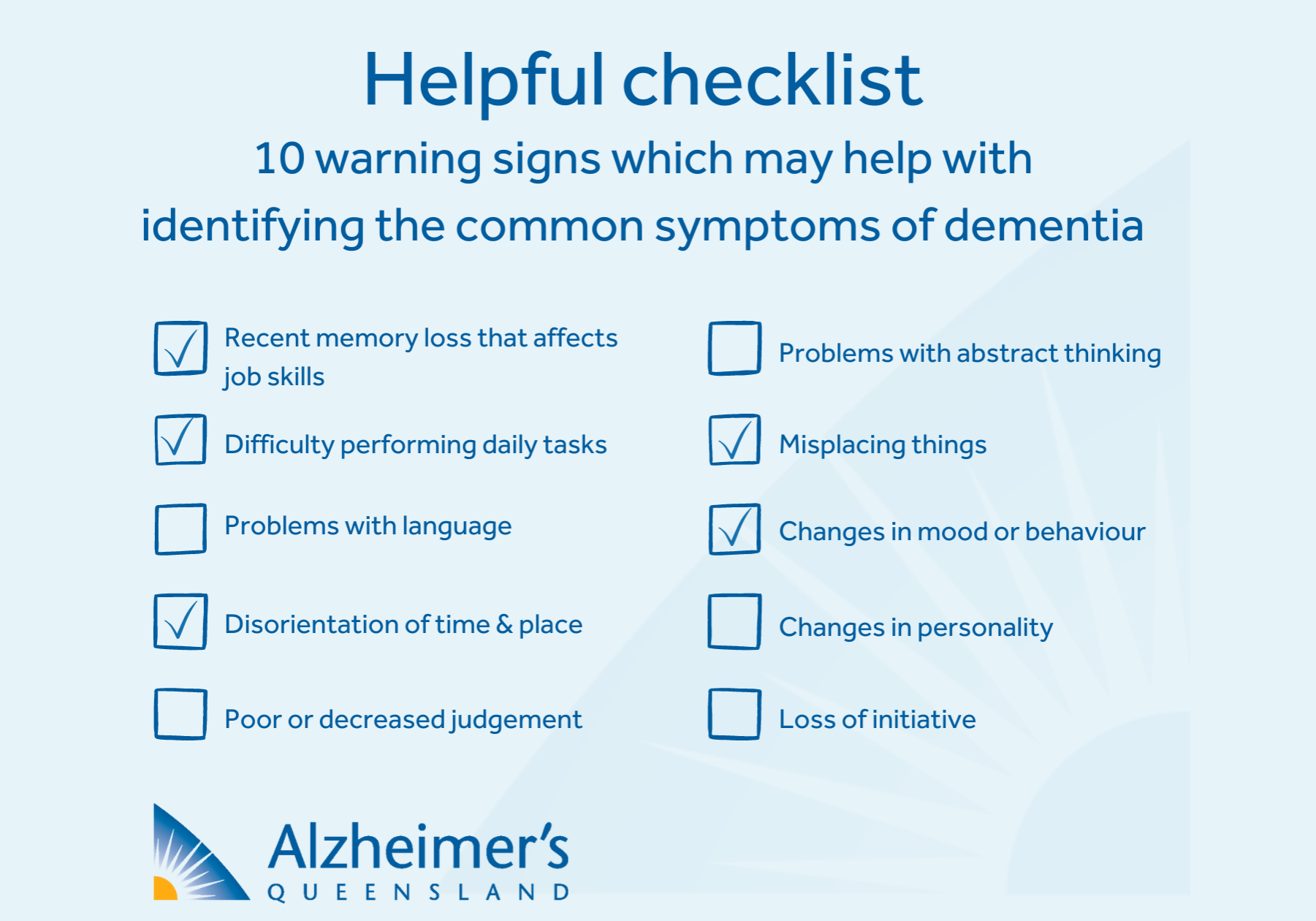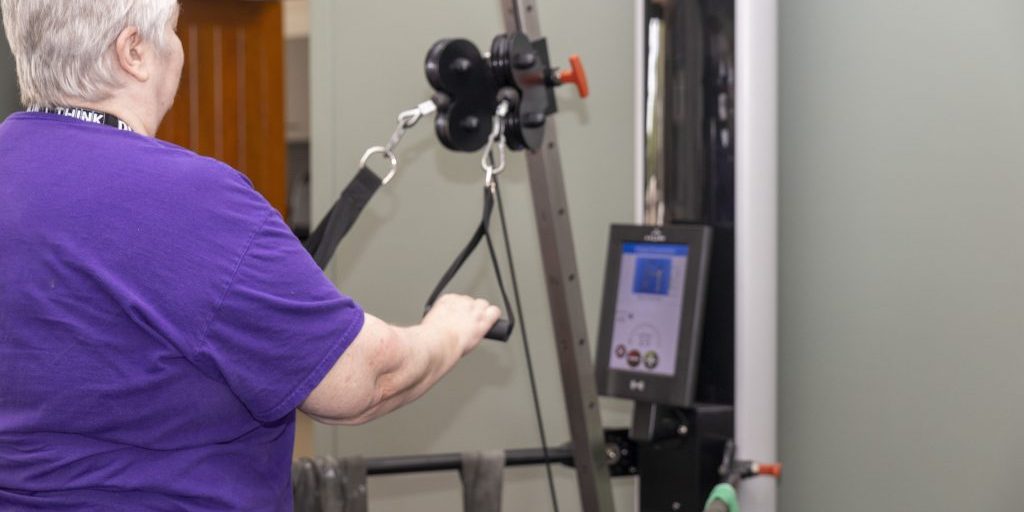A diagnosis of dementia is the first chapter of a journey that will involve many ups & downs, as well as new & unfamiliar experiences for the patient & their family alike.
Some people may not initially recognise their symptoms as a sign of something wrong, while others may experience few, or subtle symptoms. It is even common to mistake early symptoms of dementia as a normal part of the aging process.
Failing, or even refusing, to seek a medical assessment in the early stages of dementia could prove detrimental to your long-term health. It is crucial to act quickly, to secure an accurate diagnosis, & determine the most appropriate next steps for you.
Alzheimer’s Association USA has compiled a helpful checklist of 10 warning signs, which may help with identifying common symptoms of dementia.
- Recent memory loss that affects job skills (e.g. forgetting things more often than usual & not remembering them later)
- Difficulty performing daily tasks (e.g. preparing a meal & forgetting its preparation)
- Problems with language (e.g. forgetting simple words, or substituting inappropriate words)
- Disorientation of time & place (e.g. the affected individual not knowing where they are, how they got there, or how to return home)
- Poor or decreased judgement (memory & concentration impairment affecting the person’s ability to perform tasks such as driving)
- Problems with abstract thinking (e.g. having trouble knowing what certain numbers mean, or what to do with them)
- Misplacing things (e.g. repeatedly putting things in inappropriate places)
- Changes in mood or behaviour (e.g. rapid mood swings for no apparent reason)
- Changes in personality (e.g. becoming suspicious or fearful, or apathetic & uncommunicative)
- Loss of initiative (e.g. becoming very passive & requiring cues prompting involvement in usual activities).
A medical assessment for dementia can involve several steps, including a detailed medical history, a thorough physical & neurological examination, laboratory tests, neuropsychological testing & other specialised tests, such as a chest X-ray, electrocardiogram (ECG) or computerised tomography (CT) scan, a mental status test & psychiatric assessment.
While the idea of visiting a doctor or undergoing screening may be daunting, an early & accurate diagnosis is highly valuable in improving the quality of life for those living with dementia.
Your doctor will be happy to answer any questions you may have – whether you are a patient, family member, or carer of someone with dementia.
Should you have any concerns, or need support in relation to securing a diagnosis of dementia, or its management, please contact us at AQ without delay on 1800 639 331.
For more information about dementia, check out our dementia resources here.







